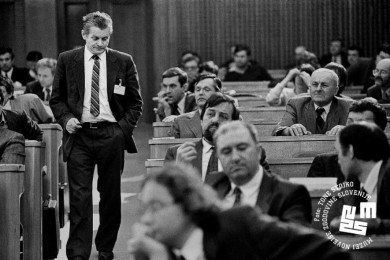19. 1. 1991: The last day of the deadline to execute the order of the Socialist Federal Republic of Yugoslavia regarding the disbandment of all armed units that are not part of the armed forces of the Yugoslav People's Army
Prime Minister Lojze Peterle reassured an anxious public and claimed, one day before the expiry of the ten-day deadline, that the order did not apply to Slovenia and the Slovenian Territorial Defence. He also confirmed that there would be no surrender of weapons. A similar reassurance was given by the then Chief of Staff of the Territorial Defence Republic Headquarters, Janez Slapar, who also said that the weapons and ammunition were stored outside the units of the Yugoslav People's Army.
At a marathon session, the Greens of Slovenia confirm further cooperation in the DEMOS coalition
On Saturday, 19 January 1991, the presidency of the Greens of Slovenia held a marathon session. After nine hours, the presidency accepted the resignation of President Bojan Brumen and appointed Dr Dušan Plut as the new/old president. The party also confirmed further participation in the DEMOS coalition and discussed several domestic environmental issues. Brumen resigned six months after taking over the Greens of Slovenia. He claimed that he resigned in large part due to his health problems. As a less pertinent reason, Brumen provided the fact that his personal opinions differed from those of the Greens’ executive council. At a secret ballot, the majority of votes went to the former president, Dr Dušan Plut, who, among other things, said that exiting the coalition would be an irresponsible act that could trigger a political crisis.
Miha Jazbinšek, the then Minister of Environmental Protection, was certain that the DEMOS coalition was more sensitive to ecological issues than the old authorities. Jazbinšek deemed it important that the Greens continue on their political path as part of the DEMOS coalition. On the other hand, Dr Božidar Voljč, the Chair of the Greens deputy group, was somewhat critical of DEMOS in the Slovenian Assembly. He claimed that differences arose when casting votes in the Assembly despite certain agreements within the DEMOS deputy group, which meant that DEMOS did not have an advance majority. Voljč also pointed out that DEMOS supported the Greens only when they were needed or when it was beneficial to DEMOS.
At the Saturday session, the presidency of the Greens also discussed numerous environmental issues. They highlighted the severely polluted air in industrial areas and demanded the immediate closure of the electrolysis process in the alumina and aluminium production factory in Kidričevo and the prohibition of alumina production. They also demanded that large power consumers pay their bills for the electricity used and settle their debts.
Victims of Yugo-Bolshevism demand the elimination of injustices caused by the Yugoslav system
Members of the association of Slovenian prisoners and persecuted persons of Yugo-Bolshevism met in Ljubljana. According to the Delo newspaper, the association was led by Radovan Hrast, one of the first Slovenian prisoners to be held on Goli Otok Island. The association’s members were people to whom the Yugoslav regime caused injustices and damage due to political and ideological reasons between 5 May 1945 and April 1990. At the Saturday assembly, the victims spoke about the numerous injustices, suffering and hardships they endured. They mentioned unfounded criminal prosecution and police and military torture, including deportations to Yugoslav prison camps and exile, as well as the unjustified confiscation of property and withdrawal of citizenship. As a burning issue, they pointed to the fact that many innocent people were killed in accordance with judicial or extrajudicial proceedings during the Yugoslav regime, which also left severe and permanent social, moral and civil consequences for their relatives.
The members of the association adopted the following message at their meeting, "The association of Slovenian prisoners and persecuted persons of Yugo-Bolshevism asks the Slovenian Presidency, the Assembly and the Executive Council, competent bodies and the representatives of the democratically elected new government and legal successors of the state that caused injustices to provide legal grounds for the Slovenian state to rectify the injustices and the consequences thereof, which were caused on the basis of political and ideological reasons between 5 May 1945 and April 1990."
Author: Andraž Koželnik
Similar articles
-
Triumphant Year of 1991
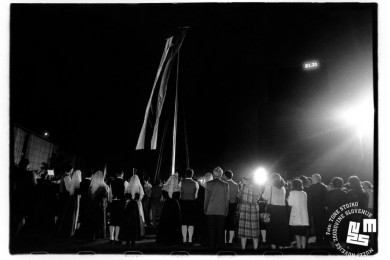
-
9. 5. 1991: Facilitated processing of independence laws
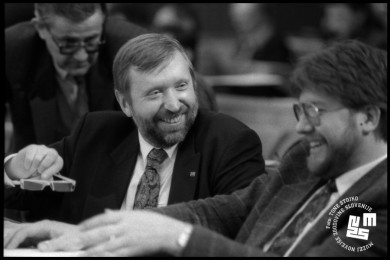
-
2. 3. 1991: Slovenians abroad and around the world in concern for Slovenia
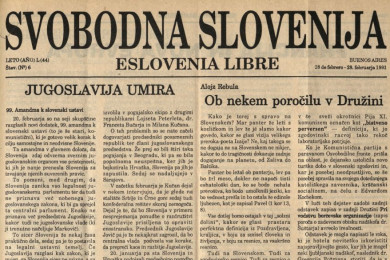
-
1. 3. 1991: Franco Juri against the transfer of conscripts to the Slovenian Territorial Defence
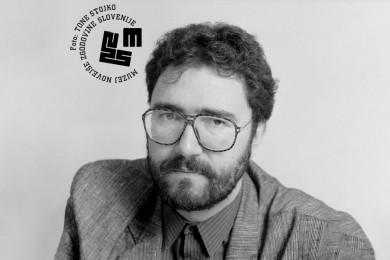
-
28. 2. 1991: Prepared defence and protection act proposal to ensure a plebiscite decision
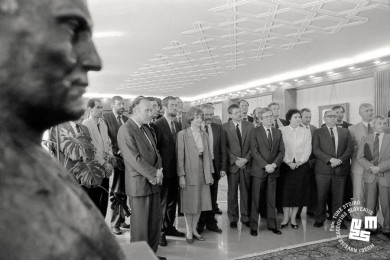
-
27. 2. 1991: The persistently looming red star
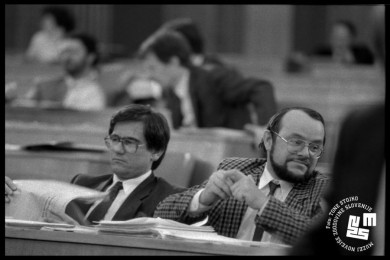
-
26. 2. 1991: A hopeless search for the Yugoslav modus vivendi
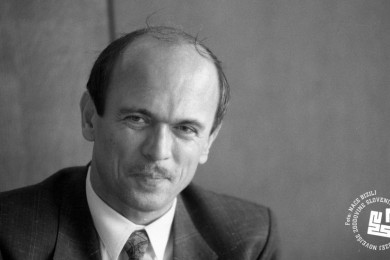
-
16. 2. 1991: Ciril Ribičič on the red star and reservations about the dissolution of Yugoslavia
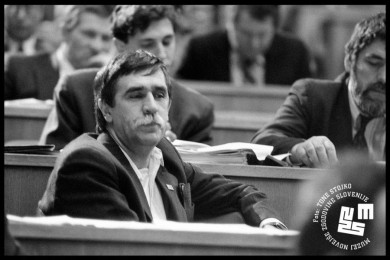
-
15. 2. 1991: Two thirds of respondents have faith in an independent Slovenia
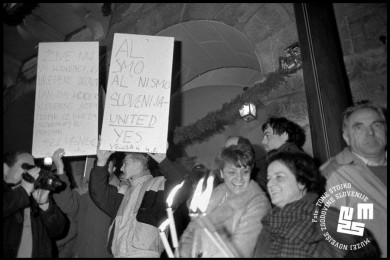
-
27. 1. 1991: Between a relaxation of tensions at home and a deteriorating situation in the Middle East
